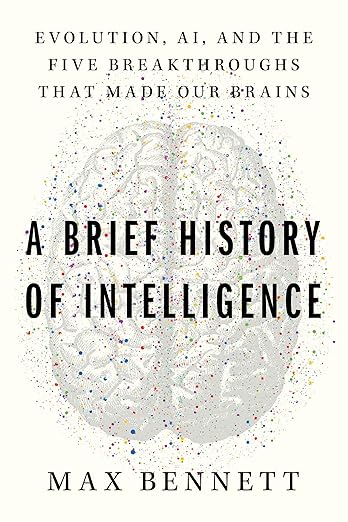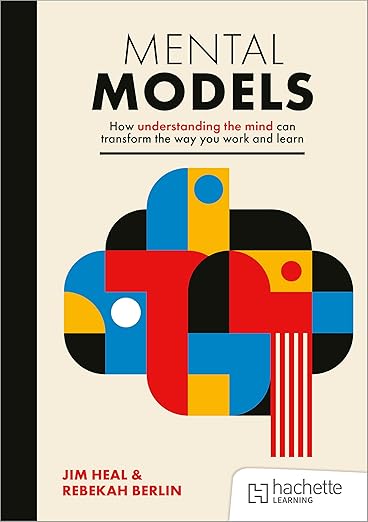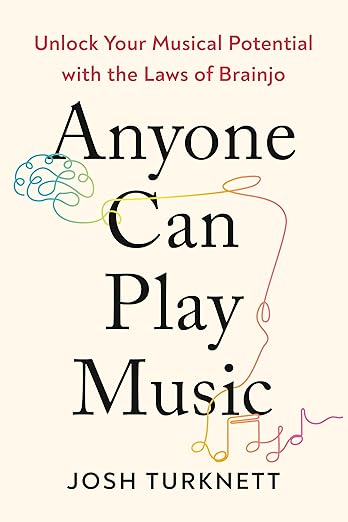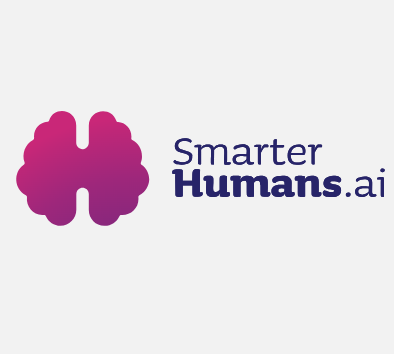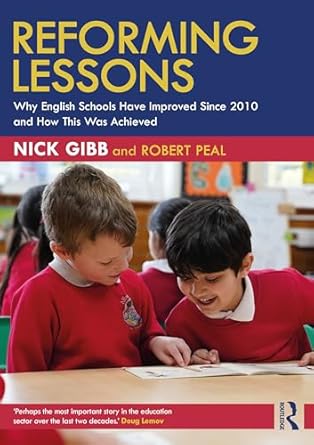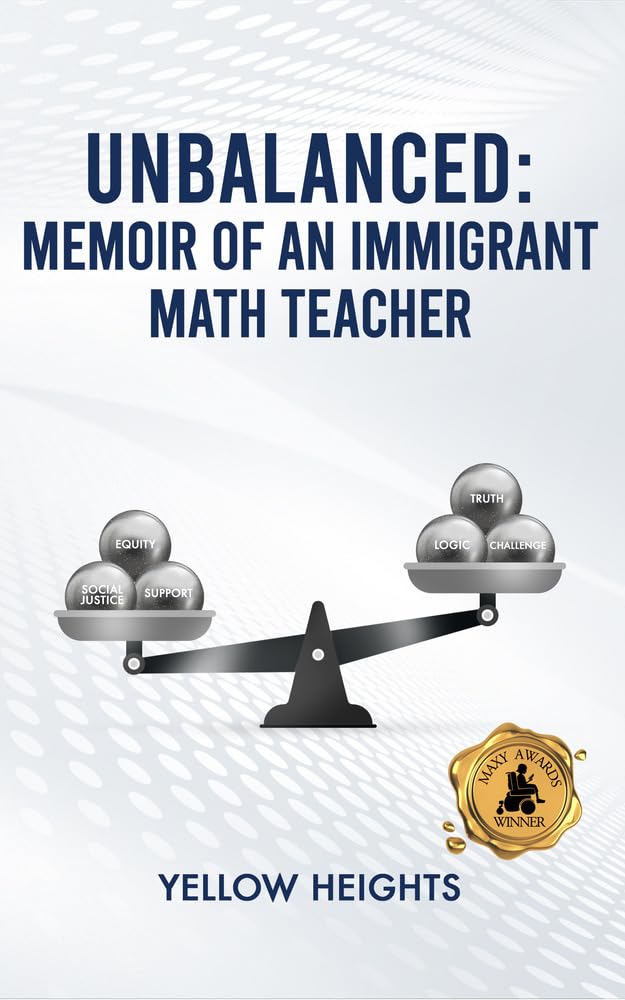
Cheery Friday Greetings from Barb Oakley!
More Research, Worse Results—What’s Going On?
I’ve launched a Substack! My first post, “The Teaching Method That Can’t Fail (and Why That’s the Problem),” asks a question that’s been nagging at me for years. We have more research than ever on how to teach well. There are more education PhDs, more journals, more studies, more funded programs than at any point in history. And yet outcomes in country after country keep getting worse. How is that possible? Could the research itself somehow be part of the problem? The answer turns out to be yes—and the reason has a surprisingly simple structure. The comment section has turned into a conversation all its own, with psychologists, teachers, engineers, and parents from around the world weighing in. Have a look and join the discussion!
Book Pick: Unbalanced: Memoir of an Immigrant Math Teacher by Yellow Heights
What happens when a sharp-minded finance professional from China trades Wall Street for a whiteboard? Yellow Heights’ Unbalanced is a riveting, deeply personal account of one immigrant’s journey into American math teaching—and the bewildering educational culture he found waiting for him.
Yellow Heights came to teaching with the kind of intellectual curiosity and directness that made him successful in finance. What he discovered in his teacher preparation program stopped him cold. Instead of learning how to teach math well, he was immersed in ideology. Class time was devoted to exploring personal vulnerability rather than instructional methods. As the author dryly notes, what the program did not teach was that math teaching requires good math skills.
The real power of this book lies in what Yellow Heights saw once he got into the classroom. He grasped something many educators miss entirely—that learning operates at three levels: conscious understanding, mental muscle (the automaticity built through practice), and intuition. In American classrooms, he found students encouraged to explore but rarely required to practice deeply enough for genuine proficiency to take root—thinking without practicing, he writes, “can make learning empty and futile, like trying to learn tennis without wielding a racket.”
But his sharpest observations are about the culture of too much kindness. At his affluent private school, he watched well-meaning adults coddle students into fragility—providing so much accommodation that students never developed the skills to handle life’s inevitable challenges. He captures the self-fulfilling cycle perfectly: the more fragile students are perceived to be, the more support they receive, resulting in still more fragility, entitlement, and dependency.
Unbalanced is that rare education book written by an outsider with no tribal loyalties to protect-someone who arrived with fresh eyes and the courage to describe what he actually saw. Yellow Heights isn’t grinding a political axe. He genuinely loves teaching, loves his students, and wants them to learn. That sincerity makes his critique all the more devastating. If you care about what’s actually happening inside American schools—and why so many well-intentioned efforts end up hurting the students they’re meant to help—this is essential reading.
What’s Resonating Right Now
A homeschooling mom named Janae recently posted a video comparing an 1877 arithmetic textbook to her son’s modern second-grade math book—and nearly 250,000 people watched it in under two weeks. The comparison is stunning. Ray’s New Primary Arithmetic from 1877 is a slim little volume that teaches one thing at a time: counting, then addition, then subtraction, then multiplication, then division, then word problems. It uses concrete objects like marbles and kernels of corn, progresses sequentially, and by the end is gently introducing algebra. Her son’s modern textbook, Envision Math 2.0, comes in two thick volumes with 13 authors, pages of Common Core standards, and asks second graders to “reason abstractly and quantitatively” and “construct viable arguments and critique the reasoning of others.” The mom’s verdict? She finds the modern book so overstimulating and confusing that she can barely figure out what’s being asked. The 3,300 comments are flooded with teachers, engineers, and parents saying the same thing. This is what the cognitive science research has been saying for years, and it’s exciting to see so many people arriving at the same conclusion from lived experience.
Evidence-Based Education Comes to Colombia
ResearchED Colombia launches in Bogotá on April 25—the first researchED conference in the country, and a landmark for evidence-based education in Latin America. The lineup includes speakers from the World Bank, Chile’s Aptus, and leading science-of-learning researchers, all focused on what the evidence actually says about how students learn. I’ll be presenting remotely on some fascinating new material about grokking and distillation in AI—and what it reveals about why a solid foundation in knowledge matters more than we thought. The conference is organized by Fundación Aprender a Quererte, whose founders include Morat, one of Colombia’s biggest bands. If you’re in Colombia or anywhere in the Spanish-speaking world, this is worth the trip. Details at researchedcolombia.com.
Calendar Party Trick (Courtesy of Nelson)
Let’s wrap the week with something a little different — and genuinely cool. In this quick video, Nelson Dellis (yes, the memory champion guy) walks through how to figure out the day of the week for any date — no phone, no calendar, just your brain. It’s surprisingly learnable — and just the right kind of nerdy to pull out at a dinner party or confuse your students into thinking you’re secretly a time traveler. Here’s the video!
That’s all for now. Have a happy month in learning!
Barb Oakley
- Uncommon Sense Teaching—the book and Coursera Specialization!
- The LHTL recommended text, A Mind for Numbers
For kids and parents: Learning How to Learn—the book and MOOC. Pro tip—watch the videos and read the book together with your child. Learning how to learn at an early age will change their life!

